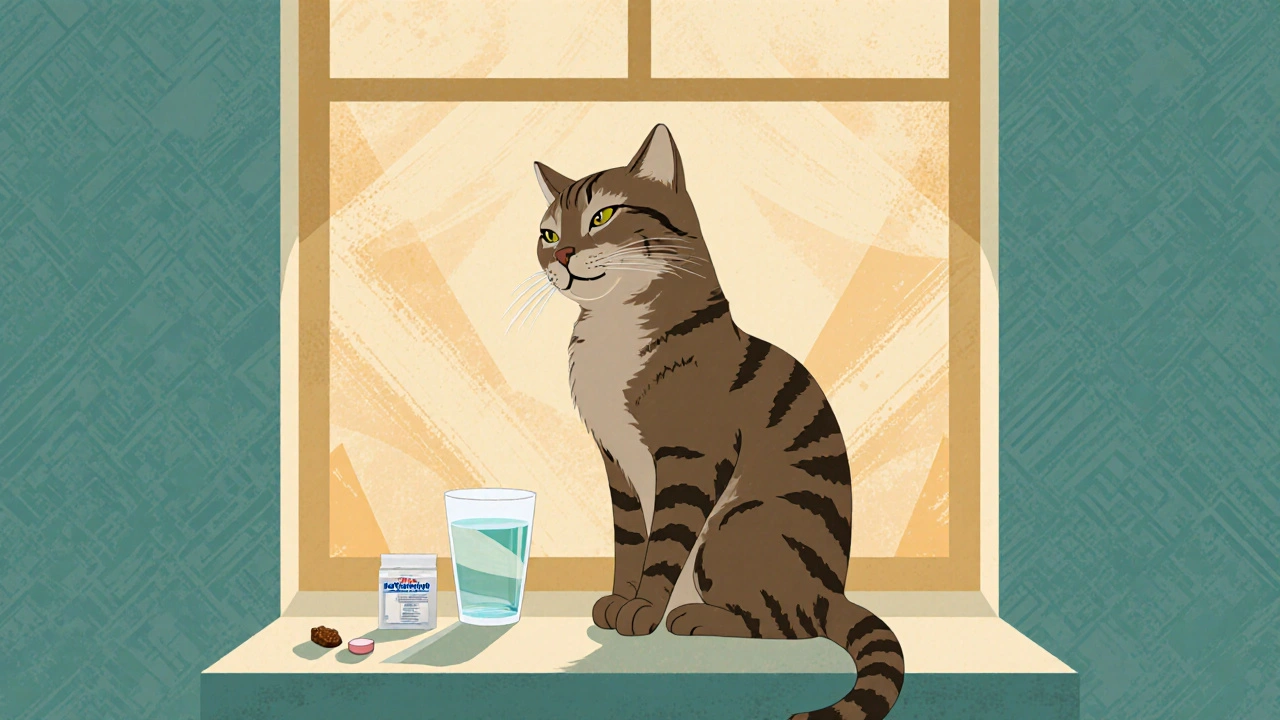Cat Thyroid Medication: What Works, What to Avoid, and How to Help Your Cat Feel Better
When a cat has hyperthyroidism, a common gland disorder where the thyroid produces too much hormone. Also known as overactive thyroid, it’s one of the top health issues in older cats—often causing weight loss, increased appetite, restlessness, and vomiting. Left untreated, it can lead to heart problems, kidney damage, or even sudden death. But the good news? There are several proven ways to manage it, and many cats live years comfortably after diagnosis.
The most common cat thyroid medication, a daily oral drug that blocks excess hormone production. Also known as methimazole, it’s the first choice for most vets because it’s affordable, effective, and reversible if side effects appear. You’ll need to give it twice a day, and your cat might need blood tests every few months to check levels. Some cats spit it out or get sick to their stomach at first, but most adjust well. If pills are a nightmare, there’s a transdermal gel you can rub on the inside of the ear—no fighting at mealtime.
But medication isn’t the only option. radioactive iodine treatment, a one-time injection that destroys overactive thyroid tissue without surgery. Also known as I-131 therapy, it cures the condition in most cats and eliminates the need for daily pills. The catch? It requires a hospital stay of 1–3 weeks because your cat will be slightly radioactive afterward. It’s expensive upfront but saves money long-term. Then there’s surgery—removing the bad thyroid lobe—but it’s riskier and less common now because of how well I-131 works.
Some owners try diet changes, like low-iodine food. It can help, but only if your cat eats nothing else—not even treats, not even a mouse from the backyard. Most cats won’t stick to it. Supplements? No proven benefit. Herbal remedies? Don’t risk it. Your cat’s thyroid isn’t something to guess with.
What you’ll find in the posts below are real comparisons—like how methimazole stacks up against other treatments, what side effects to watch for, how to tell if your cat’s dose is off, and why some cats need lifelong monitoring while others get cured. You’ll see how owners handle daily pill battles, what vets actually recommend after 20 years of practice, and how to spot trouble before it becomes an emergency. This isn’t theory. It’s what works for real cats and the people who love them.

Methimazole for Cats: Treating Feline Hyperthyroidism
Methimazole is the most common treatment for feline hyperthyroidism, helping cats live longer with fewer symptoms. Learn how it works, side effects, dosing, and how to give it to your cat safely.
